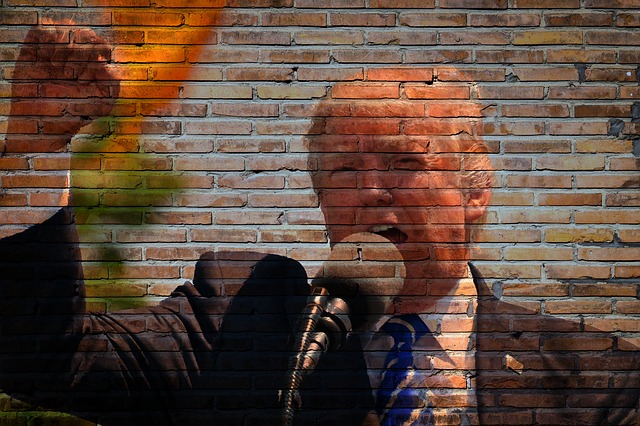Investors in the US will soon be able to translate their political preferences into exchange traded funds or ETFs. A number of stateside issuers are currently developing products which take the idea of partisan politics deep into the index tracking space - be it for Trump supporting businesses or those that will benefit from a breakup of the European Union.
This idea of expressing partisan or even moral views through the prism of an investment portfolio is not entirely new. Many ETF issuers have been quietly developing all manner of ETFs which screen the market based on ethical criteria. Islamic focused indices for instance, and their accompanying ETF trackers, have long been around and in recent years there's also been an increase in the number of exchange traded funds built using ESG factors (identifying stocks using an environmental, social or corporate governance analysis).
Some of the resulting ETFs, and their accompanying indices, have even put investing in a moral, social or even political context. More than ten years ago, for instance, Citigroup equity analyst Ajay Kapur developed the Plutonomy Index - this theoretical index posited that the world was dividing into the very rich and everyone else. The index surmised that as the plutocrats got richer, their consumption power increases. Therefore, making an index that tracks plutonomists consumption patterns makes sense - think Bvlgari, Four Seasons Hotels, Burberry, Richemont, Sotheby's, etc…
Fortunately for all red blooded anti-plutocratic liberal investors there was never an ETF developed to track this index.
In the first half of 2017 there has been a raft of new ETF listings with a strong political hint or twist, mainly based on the Trump Bump. This has included inflation hedged bond ETFs, (iShares), EM ETFs which excluded Mexico (WisdomTree), and infrastructure ETFs (Lyxor) - all of which took inspiration from Trump.
To date though politics has not been explicitly packaged into an index, or ETF, which can be traded on an exchange. This is probably for a simple reason: although investors do fret about politics, a partisan focus rarely seems to make much sense in stock selection terms. As a recent Burtonwood column by The Economist's Phillip Coggan from August points out, investors rarely make a success of guessing what will happen to stocks based on political events such as elections. Most investor's speculated on a defeat for both Brexit and Trump!
But this reluctance to favour partisan politics as a core part of stock selection is about to change - a new form of investing is emerging which offers direct exposure to politics. In a world first, new US ETFs will soon offer investors exposure to lobbyists, Republican and Democratic party strategies, and the corporate backers of successful candidates.
Trump flavoured ETFs
These new ETFs are transparently
packaging
and
commoditising
exposure to politics. Most ETFs have investment strategies whose political exposures are mostly incidental. But these new exchange-traded products have investment strategies which put politics at the centre of their stock selection process.
ETF Stream can report that new issuer EventShares has submitted prospectuses for the following actively managed ETFs:
Republican Policies ETF (awaiting approval)
Democratic Policies ETF (awaiting approval)
European Union Breakup ETF (awaiting approval)
You can see the Prospectus for these proposed ETFs
.
And Event Shares isn't the only issuer launching a more partisan version of index tracking. Point Bridge is currently proposing the Point Bridge GOP Stock Tracker ETF (MAGA - NYSE listed) - prospectus here.
So, what's inside these proposed new ETFs?
The Republican Policy ETF will be actively managed and will try to pick the winners and losers from the Republican (Trump) administration. It will do this by identifying areas (sectors, geographies - or whatever they may be) that will benefit from Trump's policies, then zoom in and pick specific securities.
In practical terms, the fund will weigh securities by how exposed to Republicans they are. The more exposed the higher the weighting. The prospectus says, the fund will "rank each sector or industry group's exposure to Republican Policies. Industry groups with positive exposure are considered to be favourably impacted, while industry groups with negative exposure are considered to be unfavourably impacted." The prospectus also, crucially, says that the fund's research method will be "discretionary", but will look at "the beliefs, party platforms, and executive and legislative policies" of Republicans.
It's worth observing that this ETF is an active fund i.e it won't be passively tracking an index. This more active approach might make sense given how unpredictable President Trump has proven.
The rival Democratic Policy ETF will feature a similar strategy, but for Democrats. One assumes the ETF will sleep until the Democrats assume government.
There's also a proposed European Union Breakup ETF which tries to identify the winners and losers from an EU break up. The prospectus says the fund will look at "EU breakup themes" and long the likely winners and short the likely losers - in a manner similar to the Republican and Democratic ETFs.
More interesting, however, is the Point Bridge GOP Stock Tracker ETF (MAGA) - which is even more radical.
MAGA - short for Make American Great Again, Trump's campaign slogan - will buy companies whose employees and lobby groups "are highly supportive of Republican candidates for election to the United States Congress, the Vice Presidency, or the Presidency", the prospectus says.
To qualify, companies must have given more than $25,000 to a Republican candidate in any of the two previous election cycles. The fund will then rank companies by how much they gave to Republicans compared to Democrats. The more money they gave to Republicans, the more heavily they'll be weighted in the index.
Does it make any investment sense?
Cynical investors might argue that all these new proposed ETFs are just an elaborate form of marketing hype - a financial equivalent to Trumpian grandstanding! They're also part of a much wider push to develop ever more exotic indices - today it's politics, tomorrow it's businesses benefitting from major league sports trends or even niche technology sectors such as music streaming businesses. Put simply where there's a theme, one can guarantee there will be an index and an ETF tracking it!
One might also argue that this explicit form of partisanship isn't actually that novel - for many politics and political ideology simply represent a new way of expressing moral views. If it's OK for a religious investor to express portfolio preferences, what's so wrong with using 'secular' world views to build a portfolio strategy?
Arguably, these indices also represent a realistic take on the fact that politics is becoming more divided and relevant - and that consumers increasingly express their preferences based on a well thought through world view. And as governments become ever more extreme, what's to stop dominant political groups from favouring certain businesses and sectors?
The increasingly illiberal Hungarian government of PM Viktor Orban, for instance, has helped drive the share price of many local stocks where he backs the business owner. Equally the strident policies of nationalist Turkish PM Erdogan are also driving local stock selection methodologies. In effect, these products simply express a form of political rent seeking, where businesses that capture the state and reap windfall gains. In essence, partisan based stock selection might make good investment sense?
A very limited series of academic studies suggest that there may be some logic to this optimistic view. One study found that for every $1 spent lobbying for a tax break, companies receive $220 in kickbacks (you can see the article here). This suggests that those who lobbied for Trump may benefit directly and see their profits rise. This may mean MAGA's strategy works.
Another piece by James Bessen in the Harvard Business Review says lobbyists caused corporate profits to rise. It argues that those most exposed to deregulation have seen big gains in profitability. This also implies that lobbying pays off (the article is here). This may have implications for the Republican Policies ETF. As Republicans often deregulate, and companies closest to the Republicans are more likely to get their way, an ETF targeting benefactors of Republican deregulation could work.
Yet despite all these shaky claims, the consensus amongst most investors probably hasn't changed - namely that betting directly on politics is for fools. The true test for these frequently actively managed ETFs will not be total returns - but how much in terms of assets these funds gather.



